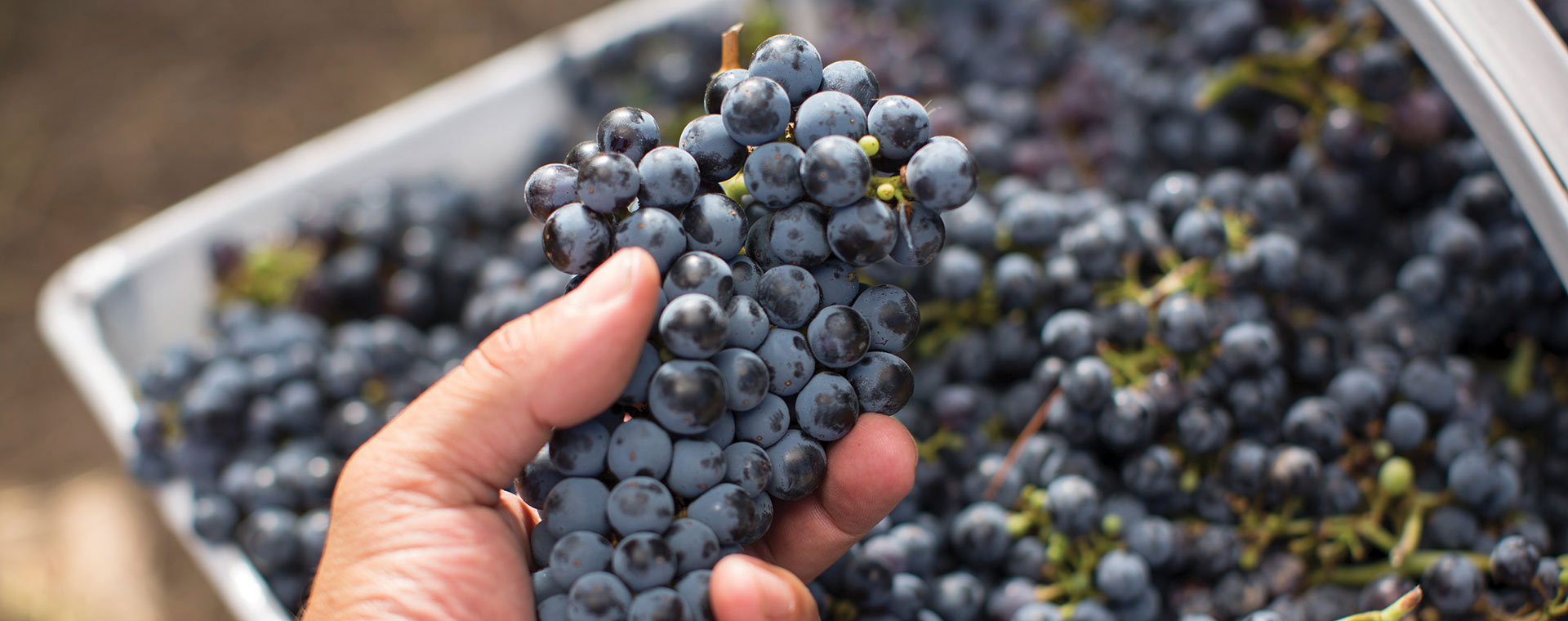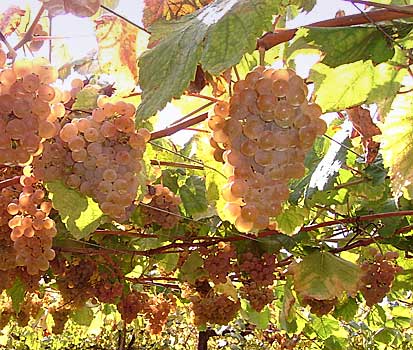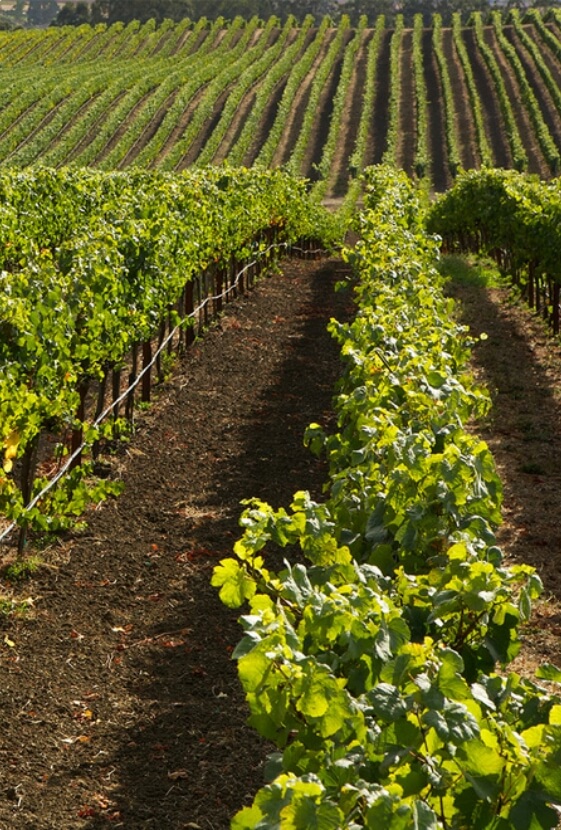
Grape Glossary
As a single varietal wine from the Rías Baixas, Albariño is light, elegant and fresh with high extract and good acidity. The grape is called Alvarinho in Portugal and is used to make Vinho Verde in the Minho region. This variety is an accessory grape in other appellations in Portugal and northern Spain. Most Albarinos don’t go through malolactic fermentation because winemakers want to retain the grape’s fresh acidity and clean, mineral flavors. Winemakers are currently experimenting with partial malos, full malos and oak aging, especially with top cuvées.
Albariño is a late ripening, moderately cool to warm climate variety. Though fairly vigorous, its bunches yield a small amount of juice because of the number of pips in the berries. The fruit is hardy, with thick skin, a key contributor to its intense fragrance. With extended hang time, the grape is high in sugar and potential alcohol and is invariably extremely high in acid.
It is believed that Albariño is indigenous to Galicia in northwest Spain.

